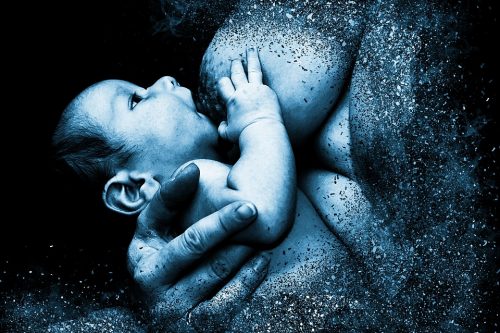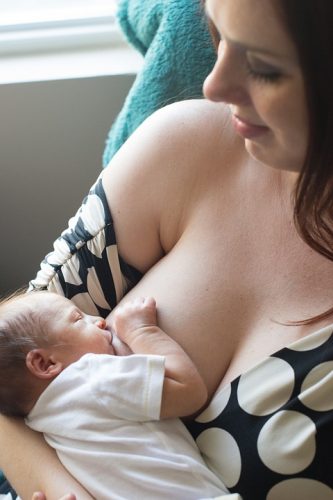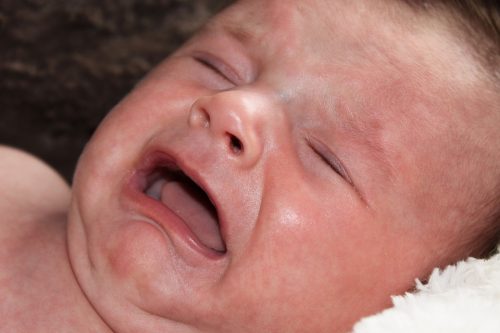Why I Believe Breastfeeding Isn’t For Every Mom

Many experts tout breast milk as the best food a mother can give her baby. Posters and pictures all depict a rosy image of breastfeeding – a smiling mother and a contented-looking baby latching on to her breast. No one thing indicated that breastfeeding could be problematic; nothing that showed it could be nightmarish.
Don’t get me wrong. I’m not against breastfeeding. In fact, I’m still breastfeeding my soon-to-be three-year-old toddler though it’s more of the supplementary kind as she already drinks powdered milk and eats solids.
However, the first time I did it was a harrowing experience I could never forget, something I wish to share to other moms who think themselves less than perfect for not being able to wholly, or in any type, breastfeed their babies.
“We found that very commonly the same moms who were struggling with breastfeeding were also depressed,” Alison Stuebe, MD said. “There was a tremendous clinical overlap.”
The Start Of My Story

I came from a country where breastfeeding is highly encouraged through advertising its benefits and making it mandatory in public medical facilities. I anticipated the coming of my first baby with stories regaling the use of my own body to feed my child, that it should be that way, which because my baby is a human being, then I should nourish him with human milk. I prepared myself by reading everything about breastfeeding, consuming galactagogues or foods that are sure to increase my milk production even before birthing my baby and living as healthy as I could.
I thought I was ready. I wasn’t.
Pain And More Pains
It was painfully excruciating the first time my newborn latched on my breast to feed. The pain seemed to zing right from my chest to the tips of my hairs right down to my toes. And because he had such a forceful suckle; my nipples became raw immediately making feeding more agonizing. I wanted to give up that first time, but I couldn’t, knowing that I have no other way to feed my baby. The facility I was in didn’t allow infant formulas, and I know I’d get an earful from the nurses and doctors if I smuggled in one. “Your nipples may feel irritated at first because they’ve never had that degree of stimulation, but if you’re writhing in pain, you might have a problem with the latch,” Dr. Laura Jana, M.D. says.
Then, I instinctively felt that my baby wasn’t getting enough milk from me. He’d feed every once in a while but would continue crying even after I fed him. I was still recovering from my birthing pains, my breasts were aching, and I had to contend with a baby who’s always crying and wouldn’t sleep. It was depressive.
“It’ll get easier in time. Your body will produce more milk to keep your baby well-fed and contented,” soothed one nurse when I told her about my predicament. My mom’s comments that ran along the lines of“how she couldn’t understand why I wasn’t making enough milk for my son” didn’t help either.

By the second day, I couldn’t take the stress and heartbreaking scene of my baby crying anymore that I pleaded with my mom to find me someone who can donate breast milk for him. Fortunately, she had a friend who was just weaning her two-year-old, and we asked her to come over (we couldn’t bring in feeding bottles because the facility forbade them, too). After that friend fed him, it was the first time my baby stayed sleeping throughout the night.
The following day, my husband asked the doctor if we could go home. Seeing that everything seemed fine, the baby wasn’t fussy anymore, and his temperature was okay, we were released. But when we got back to our house, he started crying again and was slightly feverish. It was that time that my husband decided to buy formula milk for the child despite my mom’s protests about infant formulas not being entirely safe for babies’ consumption. I was fearful but at the same time relieved that someone decided for me on the matter.
Realizations And Lessons
I wanted to breastfeed my baby, badly. But I knew he wasn’t getting enough from me. At the same time, I felt fearful that the infant formula wouldn’t do him good. In reality, it did. I mixed-fed my son, alternating between the bottle and my breasts. And he grew up more than fine.
I learned a lot from my first breastfeeding experience. I know now not to dismiss my instincts as a mom and to recognize the limits of my body. I know that opting to mix-feed my baby doesn’t make me less than the other moms who choose to breastfeed all the way. I learned that it isn’t always wise to listen to what others have to say. “Our culture often focuses on breastfeeding at the expense of a new mother’s mental health and wellness, too often forgetting that filling baby’s belly is ultimately all that matters.” Carly Snyder, M.D. notes. Most importantly, I learned that breastfeeding could both be beautiful and painful.
If you’re a new mom or an expecting mother-to-be reading this piece right now, please bear in mind that what we imagine motherhood to be in our thoughts isn’t always what happens in reality. Being a mother isn’t without its woes, its pains, its difficulties. But know this; the joys of being a mother brings wouldn’t be complete or as valuable without these things.